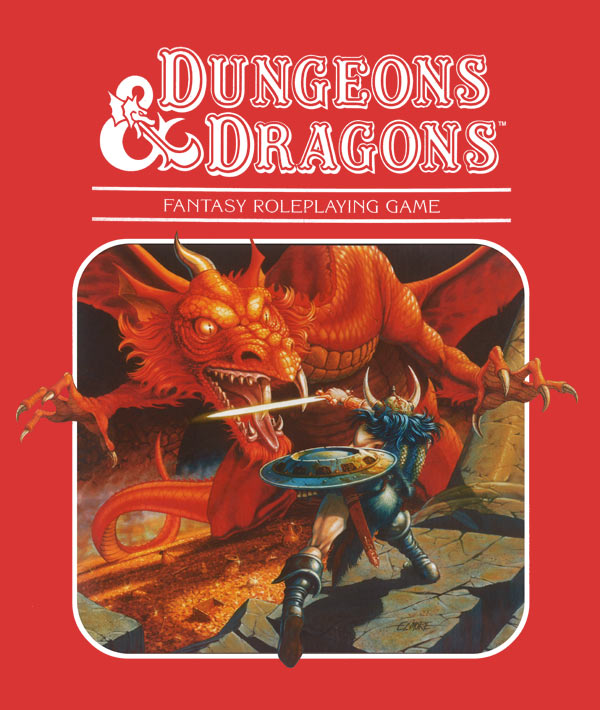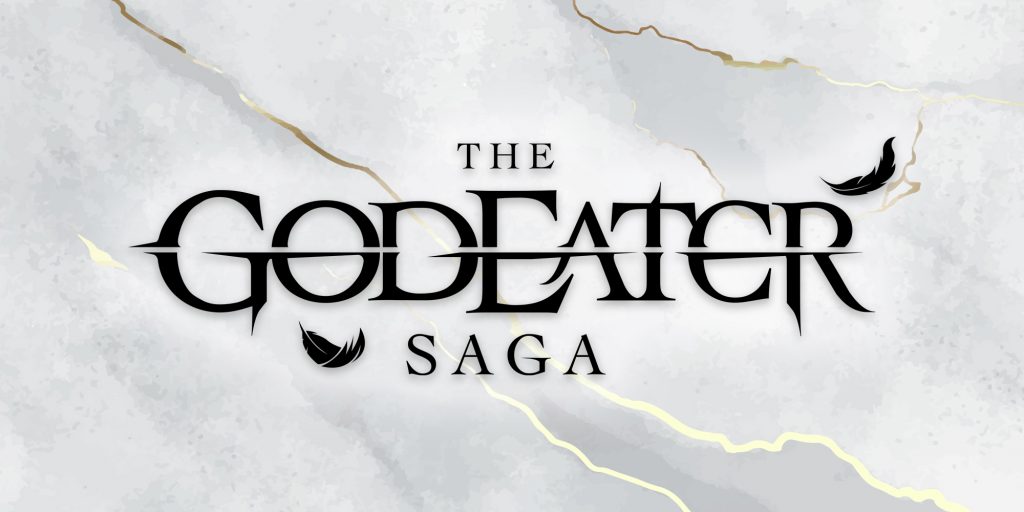I was playing Dungeons & Dragons (D&D) a while back and our Games Master (GM) looked up from his book and sighed at us. He pointed out that playing D&D basically puts the players in the shoes of super heroes in a fantasy setting. We were monstrous and taking down monsters and he (the GM) was finding it all a bit dull. It got me thinking. How much of modern epic fantasy is actually a bit like that?
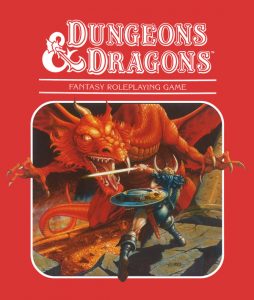
We probably all know the hero’s journey by now, but if we don’t, here’s a quick recap.
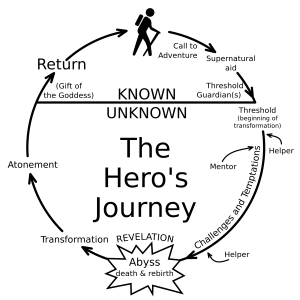
It’s pretty well-known by this point and pretty well-accepted as a good basis for many a story. But is the hero’s journey becoming more about the super-hero’s journey in modern epic fantasy?
There was always a degree of it. Some farm boy/girl finds out they’re the chosen one, goes on some epic quest, finds a powerful artefact/unlocks their hidden potential, comes back to crush the evil dark lord. Sure. But these days are our heroes a little bit TOO powerful after they come back to crush said evil dark lord?
I’m gonna drop some spoilers here and some names. I would like to point out that I am in no way disparaging any of these authors or their works… apart from Patrick Rothuss because fuck Kvothe in his smug, self-righteous face.
In Brandon Sanderson’s Mistborn trilogy we see Vin go from orphaned street urchin with the power to cower from her enemies, to full-blown apocalypse in human form. By the end of the trilogy she is swinging through the streets like Spiderman and crushing people like the Hulk. Definitely not just a hero, Vin is a super-hero.
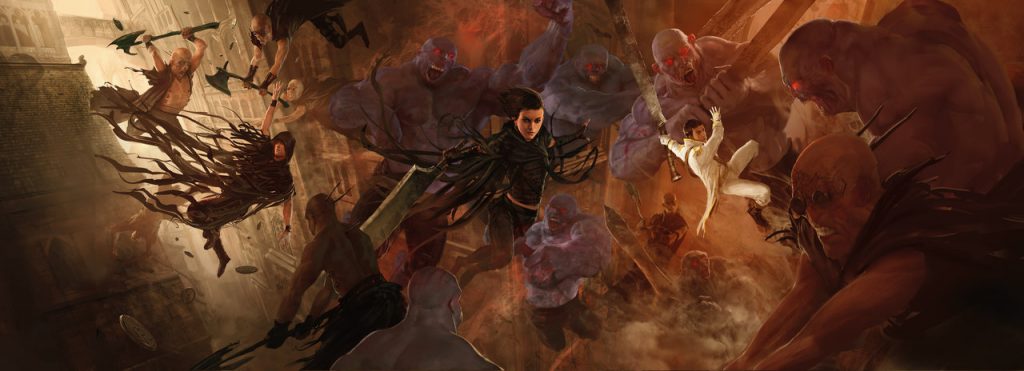 (Image: Mistborn by Marc Simonetti)
(Image: Mistborn by Marc Simonetti)
In Brent Week’s Night Angel trilogy we see Kylar go from (this might sound familiar) orphaned street urchin, to racing through an army cutting a swath through his enemies. He bonds with a sort of magical metal which can cover his body and… well basically it gives him superpowers… sounds a bit like Venom… and works a bit like Venom. Kylar definitely is a super-hero.
In Patrick Rothuss’ Kingkiller Chronicles we see Kvothe (smug little, pretentious shit that he is) orphaned and start life as a street urchin… yeah it happens again. Now the story is still ongoing but already we can see that Kvothe is developing superpowers and is pretty much already better than everyone at everything (that would be the crux of my issue with him). Kvothe is a super-hero.
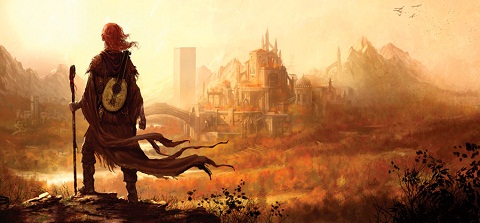 (Image: Name of the Wind by Marc Simonetti)
(Image: Name of the Wind by Marc Simonetti)
In Raymond E. Feist’s Riftwar Saga we see not one but two orphans, Pug and Tomas. One grows up to be a god and the other grows up to be a mage with powers that pretty much make him a god. They are both super-heroes.
I could keep going. I won’t because then it just turns into a list, but I could… trust me. You can probably already see a pattern forming here and it likely looks familiar to you. We see it in comics the world over. Orphaned child grows up and develops/awakens super powers to beat the big bad.
But epic fantasy wasn’t (and isn’t) always like this.
J.R.R.Tolkien’s Lord of the Rings and the Hobbit both centred around a hobbits who never developed anything approaching super powers. In fact in the whole series the only character who could be called super-hero like (at least character who really participates) is Gandalf and… well he never really uses magic in that way… in fact I barely remember using magic at all… apart from to summon the bloody eagles. Neither Bilbo, nor Frodo were super-heroes.
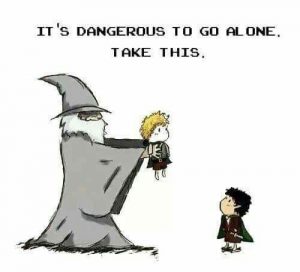
In Joe Abercrombie’s First Law trilogy we follow Logan, Jezal, Ferro, and Glokta and none of them have super-powers… well maybe Ferro did, but it was never really explained. Bayaz might have had something approaching super-powers, but he was a background player. None of the major characters were super-heroes.
In Scott Lynche’s Gentlemen Bastards we follow the exploits of Jean and Locke as they attempt to rob everyone of everything because of reasons. Jean is a dab hand with a hatchet or a fist and Locke is fast as a whip and smarter than pin-stripe suit, but that’s as far as it goes. Neither Jean, nor Locke are super-heroes… though Locke is an orphan street urchin.
Now all of these are books I’ve enjoyed, even the Kingkiller Chronicles (though that’s more to do with Rothuss’ lyric-like prose and less to do with his annoying, shit-faced characters), but I find myself leaning more towards the non-super-hero books when I try to decide which I liked more.
It’s also made me look at my own works and I realise that ten years ago I used to write stories about characters who were, or became, super-heroes. But these days I tend to write more about characters becoming heroes and overcoming odds, but doing it without superpowers.
 (Image: The Heresy Within by Sigbjorn Pederson)
(Image: The Heresy Within by Sigbjorn Pederson)
I think all too often I find myself in a similar position to my D&D group’s GM. Once the character in a story reaches the pinnacle of their powers, I find myself detaching from them and becoming a little bit bored with the whole affair. Either the big bad gets crushed because the hero has too much power, or the big bad powers up to his final form and they fight and its all just Michael Bay explosions on a page until the hero eventually wins.
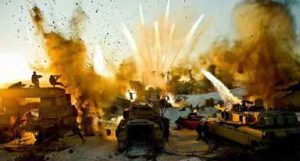
So let’s not forget that stories can be heroic, and characters can be heroes, without being about superpowers. Also, modern epic fantasy needs more dragons.

